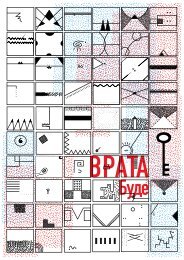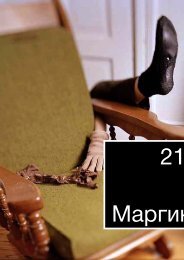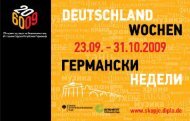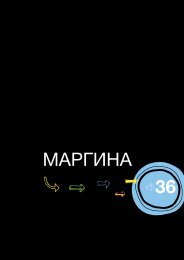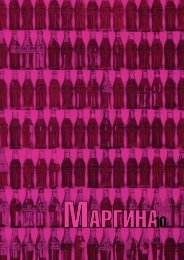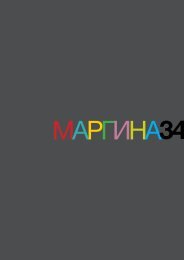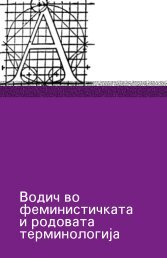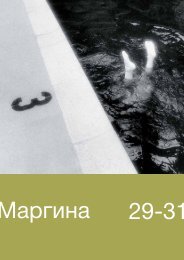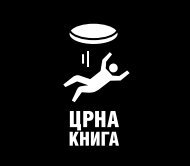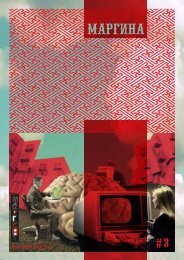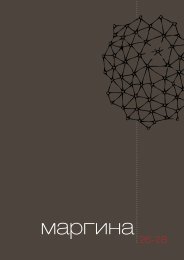НАСТАВА И УЧЕЊЕ НА 21–ОТ ВЕК
Настава и учење на 21-от век - Збирка на материјали за ...
Настава и учење на 21-от век - Збирка на материјали за ...
Create successful ePaper yourself
Turn your PDF publications into a flip-book with our unique Google optimized e-Paper software.
Користена литератураи други извориНаставен план и програма на 21-от век (тема 1.2.)Клучни компетенции во општеството кое во основа го имазнаењето (Key Competencies in a knowledge based Society)http://ec.europa.eu/education/policies/2010/doc/basicframe.pdfПартнерство за вештини за 21-от век (Partnership for 21 stCentury Skills)http://www.21stcenturyskills.org/Настава и учење на 21-от век (тема 1.3.)Целисходно вклучување на учениците – насоки за ученицитекако партнери во промените во училиштето (MeaningfulStudent Involvement Guide to Students as Partners in SchoolChange – Adam Fletcher 2005, Human Links Foundation)Учење преку проекти (тема 2.1.)Прирачник за учење преку проекти (Project Based LearningHandbook)http://www.bie.org/index.php/site/PBL/pbl_handbook/intro.phpНастава за учење преку проекти: Креирање возбуда за учење(Project-Based Instruction: Creating excitement for learning)http://www.nwrel.org/request/2002aug/textonly.htmlУчење преку проекти (Project-based learning)http://www.edutopia.org/Учење преку проекти (Project-based learning)http://pbl-online.org/Учење преку решавање проблеми(теми 2.3., 2.5., 3.1. и 3.2.)Учење преку проблеми (Problem-Based Learning)http://www.cotf.edu/ete/teacher/teacherout.htmlВовед на учење преку проблеми (An introduction to problembasedlearning)http://www.ukcle.ac.uk/resources/pbl/uea2.htmlУчење преку проблеми (Problem Based Learning)http://www.palatine.ac.uk/files/1010.pdfНастава насочена кон ученикот и учење преку проблеми(Learner-Centered and Classrooms Problem-Based Learning)http://www.ncrel.org/sdrs/areas/issues/content/cntareas/science/sc3learn.htmУчење преку проблеми: Наставен модел иконструктивистичка рамка (Problem Based Learning: Aninstructional model and its constructivist framework)http://crlt.indiana.edu/publications/duffy_publ6.pdfУчење преку проблеми (Problem based learning)http://www.studygs.net/pbl.htmПреглед на учење преку проекти (A review of problem-basedlearning)http://www.bie.org/files/Ward%20&%20Lee_A%20Review%20of%20Problem-Based%20Learning.pdfУчење преку проекти во математика (Problem-Based Learningin Mathematics. ERIC Digest.)http://www.ericdigests.org/2004-3/math.htmlУчење преку проблеми во настава насочена кон ученикот(Problem-Based Learning in the Student Centered Classroom)http://www.jeffutecht.com/docs/PBL.pdfПримена на учење преку проекти како истражувачка методаво географија (Implementing a Problem-Based LearningApproach to Teaching Research Methods in Geography)http://surveys.canterbury.ac.nz/herdsa03/pdfsnon/N1171.pdfВовед на учење преку проблеми (Introduction to problembased learning)http://pbln.imsa.edu/model/intro/index.htmlУчење преку проблеми (PBL Teaching and learning template)http://pbln.imsa.edu/model/template/Како се применува учењето на решавање на проблеми (HowProblem-Based Learning Works)http://dels.nas.edu/teachers/howto.shtmlУчењето преку проблеми наспроти учељњето преку проекти(The Problem versus Project-based Learning Continuum, JeffreyA. Novak, Ph.D. Indiana University – Purdue University FortWayne’ prepared for the Challenge 2000 Multimedia Project byCamille Esch of SRI, International, Copyright 1998, san MateoCounty Office of Education.)Проекти за решавање проблеми прекудизајнирање (тема 2.2. )Design in Mind Learning @ the Teach, Noyce Center for Learning)Самостојно истражување (тема 2.3.)Вовед во истражување во училница (Classroom Research: AnIntroduction)http://www.evergreen.edu/washcenter/resources/acl/c1.htmlЦиклус на истражувачки процес (The Research Cycle)http://questioning.org/rcycle.htmlhttp://questioning.org/rcycle.htmlАкциски проекти (тема 2.4.)Jensen, B.B. (2004). Environmental and health education viewedfrom an action-oriented perspective: A case from Denmark.Curriculum Studies. 36(4): 405-425.Jensen, B.B. & V. Simovska. (2003). Young-minds.net/LessonsLearnt, Student Participation, Action and Cross-CulturalCollaboration. The Danish University of Education.Деца, партиципација, околина (COPE. Children, Outdoor,Participation, Environment)http://www.norden.org/en/publications/publications/2007-586/at_download/publicationfile100Настава и учење на 21-от век



